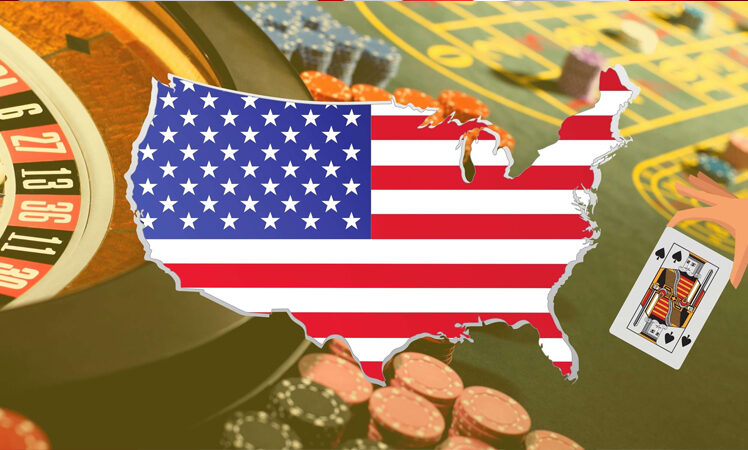Illegal Wagers Drain Billions Nationwide
Americans are wagering an estimated $673.6 billion each year with unregulated gambling operators, according to a new analysis released by the American Gaming Association (AGA). The report, conducted by The Innovation Group, underscores the scale of the illicit market, which continues to divert billions in potential revenue from licensed operators and state governments.
The study estimates that 31.9% of the total U.S. gaming market remains unregulated, despite the rapid growth of legalized sports betting and iGaming in recent years. Since 2022, the underground sector has expanded by 22%, driven largely by online play, the spread of unregulated “skill” machines, and ongoing illegal sports betting activity.
Bill Miller, president and CEO of the AGA, framed the findings as both an economic and consumer protection issue. “Illegal gambling operators are thriving at the expense of American consumers, siphoning billions in tax revenue from state governments, and undercutting the efforts of the legal market,” Miller said in a statement. “It’s time for a national crackdown on the pervasive illegal market that is draining state coffers and putting people at risk.”
| Category | Illegal Wagers / Revenue | Key Findings | Impact |
|---|---|---|---|
| Overall Illegal Market | $673.6B annually | 31.9% of U.S. gambling market; 22% growth since 2022 | Billions lost in tax revenue |
| Unregulated “Skill” Machines | $30.3B revenue | 625,000 machines nationwide; +7.7% since 2022 | $9.5B in lost state taxes |
| Illegal iGaming | $18.6B revenue | 38% growth since 2022; $466.2B wagered annually | Legal-only play fell from 52% to 24% |
| Illegal Sports Betting | $84B wagers / $5B revenue | Illegal market share down to 24% from 36% | ~$1B lost in state taxes |
Unregulated Machines Emerge as Major Concern
One of the fastest-growing segments of the illegal market involves unregulated “skill” machines—devices that resemble slot machines but often avoid classification under state gambling laws. The report found more than 625,000 such machines in U.S. bars, restaurants, and convenience stores, a 7.7% increase since 2022. These devices generated an estimated $30.3 billion in revenue last year, costing states approximately $9.5 billion in lost tax collections. Because they operate outside regulatory oversight, the machines pose consumer risks while also competing directly with legal gambling establishments. The AGA described them as among the most pressing threats to the licensed industry.
The report highlights sharp growth in unauthorized iGaming, including online slots and table games. The sector produced $18.6 billion in annual revenue, a 38% increase since 2022. Player behavior has shifted in ways that challenge regulators: only 24% of iGamers now play exclusively on legal platforms, down from 52% three years ago. Nearly half of all online players now split their activity between licensed and unlicensed sites.
Despite this trend, illegal operators’ overall market share in iGaming has declined somewhat, suggesting that legalization in new states and enforcement efforts have slowed their dominance. Still, the AGA estimates that $466.2 billion is wagered annually through unauthorized online channels, making iGaming the largest segment of illegal gambling by total handle.
-
Illegal gambling remains large: Americans wager an estimated $673.6 billion annually through unregulated operators, representing 31.9% of the U.S. market.
-
Rapid growth in unregulated sectors: “Skill” machines and illegal iGaming have surged, costing states billions in lost tax revenue.
-
Sports betting improving but still risky: The illegal share of sports betting has dropped to 24%, yet 1 in 10 bettors still uses unlicensed platforms.
Illegal Sports Betting Declines, But Persists
Sports betting presents a mixed picture. Americans wagered around $84 billion with illegal bookmakers and offshore sites in 2024, generating $5 billion in revenue for unregulated operators and costing states roughly $1 billion in lost taxes. The proportion of bettors who use only illegal outlets has declined by one-third since 2022. The illegal share of the sports betting market has fallen from 36% to 24%, suggesting that legalization and regulated platforms are drawing players away from unauthorized operators. Still, about one in ten sports bettors continues to rely exclusively on illegal providers.
Miller stressed that enforcement must extend beyond U.S. borders. “These bad actors operate in the shadows with zero consumer protections, no responsible gaming obligations, and no economic return to the communities they exploit,” he said. “Combating them requires not only stronger U.S. enforcement, but also continuing to work closely with our international partners to shut down offshore operators and hold them accountable.”
Illegal gambling operators are thriving at the expense of American consumers, siphoning billions in tax revenue from state governments, and undercutting the efforts of the legal market.
A Dual Reality for U.S. Gambling
The AGA’s analysis highlights a dual reality: while regulated gaming expansion is reducing the market share of illegal operators in some sectors, particularly sports betting, the overall size of the underground industry has grown.
With billions in lost tax revenue and unresolved consumer protection issues at stake, the association is calling for a coordinated crackdown across federal, state, and international jurisdictions. The findings suggest that without sustained enforcement, the unregulated sector will continue to siphon money from the legal industry and leave consumers vulnerable.







